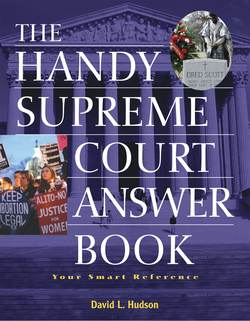Читать книгу The Handy Supreme Court Answer Book - David L Hudson - Страница 236
На сайте Литреса книга снята с продажи.
In what decision did the Marshall Court reject a federal common-law claim of seditious libel?
ОглавлениеThe Marshall Court ruled in United States v. Hudson and Goodwin (1812) that the federal courts cannot exercise jurisdiction in a common-law criminal seditious libel case. The case arose after the federal government charged Barzillai Hudson and George Goodwin for publishing in the Connecticut Currant that the president and the U.S. Congress gave French emperor Napoleon Bonaparte $2 million to make a treaty with Spain. Justice William Johnson wrote that “the legislative authority of the Union must first make an act a crime, affix a punishment for it, and declare the Court that shall have jurisdiction of the offence.”
President Andrew Jackson, above, disagreed with the Marshall Court’s ruling in Worcester v. Georgia, which favored the Cherokee Nation. Jackson eventually instituted a policy that forced the Cherokee to leave their land and move west in what became known as the “Trail of Tears.” Hulton Archive/Getty Images.
